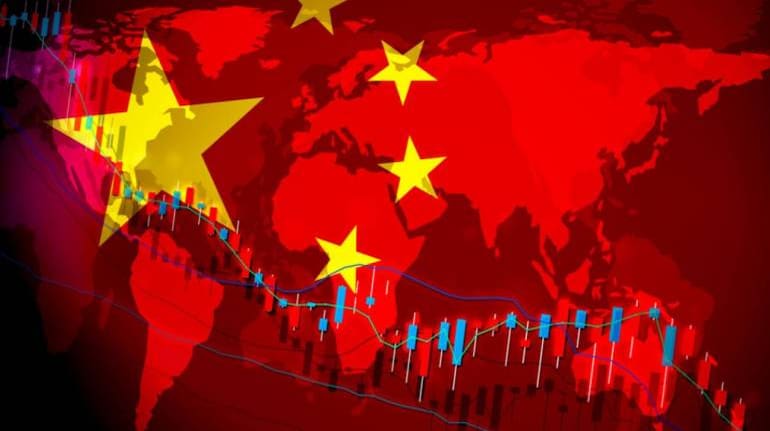



China’s attempts to illegally add Investment Facilitation for Development Agreement (IFA) to the WTO Agreement in the 13th Ministerial Conference of the World Trade Organisation has caught the attention of the proponents of ‘Swadeshi’ economics. India and South Africa both successfully opposed this move. However, WTO has also come under fire from the Rashtriya Swayamsevak Sangh (RSS) backed Swadeshi Jagran Manch(SJM), an organisation that vouches for ‘Swadeshi’ model of economic growth.
The proponents of Swadeshi economics have been sceptical about the role of the WTO right from the beginning. According to an official communique during the WTO conference, SJM said, “We wish to highlight that the present attempt of the WTO secretariat at the behest of certain global powers, including China, is completely illegal. There are several legal issues involved in the process of adding IFA as a plurilateral agreement to Annex 4.”
IFA’s Loose Footing
There are valid arguments to back this opposition to the attempts at creating a Chinese hegemony. First, the IFA does not qualify as a ‘trade agreement’ under Article X.9 of the Marrakesh Agreement. The IFA does not include any substantive provision related to trade. The proposition that the IFA is a “trade agreement” has no valid ground.
Second, the request to add the IFA into the WTO can come only from Members that had fulfilled their domestic procedures to sign and ratify the IFA, and for which the agreement has entered into force. As the IFA had not yet entered into force for even a single party, the request to add it into the WTO was ultra vires. Such a request could be made only after the IFA entered into force, and not before that.
Third, negotiations on the IFA were initiated without a multilateral mandate. This was contrary to the long-held practice of the WTO to take decisions by consensus, and prevented Members from examining whether issues related to investment facilitation were trade-related or not. Attempts at adding the IFA to the WTO ignored the reality of illegality of initiation of the underlying negotiations.
In light of these legal infirmities mentioned above, there was strong opposition for integrating the IFA into WTO at MC-13. Hence, the SJM called upon the WTO Membership to respect the legal requirement that the IFA can be added to the WTO exclusively by consensus. A rules-based WTO cannot ignore its own rules and go ahead with this China-led initiative, it added.
Another argument against the IFA is that there is nothing in the IFA that will help developing countries to attract foreign investment. In reality, it is a charter for protecting the interests of foreign investors. It strengthens multinational corporations to lobby against new laws that they oppose, giving them rights that we don’t have as citizens. Finally, there is no special or differential treatment in the IFA.
Further, inviting foreign direct investment is the prerogative of a sovereign, which cannot be and should not be diluted or tempered with any international agreement, as it would be encroaching upon the rights of the legislature or in other words, people of the sovereign nation.
China’s Interests
There seems to be sinister designs behind the intent, content and structure of the proposed agreement. This is also apparent from the fact that in the garb of creating global standards for investment facilitation measures, the design was to deprive the sovereigns from the rights of regulating and monitoring FDI in their respective territories.
Though the promoters of the agreement were claiming that agreement would not restrict the parties to regulate FDI in the public interest within their territories, it was contradicting itself because the agreement includes provisions such as:
‘Most Favoured Nation’ (MFN) treatment and impartial administrative procedure for investment from all member countries.’
This can be explained by an example that post Doklam, India has put certain restrictions on FDI from all the countries which share borders with India, mandating permission of investment through ‘approval route’, in place of ‘automatic route’. With this measure, India could restrict investment from a country which was hostile to India. If India allowed this agreement, parties would be deprived of any such freedom to safeguard their respective interests.
It is clear that the IFA had been pushed by China and more and more signatures consenting to the proposal were obtained by arm-twisting the small nations participating in Belt and Road Initiative (BRI) of China. It is no secret that through BRI, China is executing its infamous ‘Debt Trap’ diplomacy which is a part of its expansionist strategy.
Through its debt trap diplomacy, China has been able to snatch away key strategic assets and locations from countries participating in the BRI. As a result, China is increasingly becoming a major threat to global security and peace. Hence, the demand for blocking IFA in the interest of global peace.
Earlier Sanghnomics columns can be read here.
Arun Anand has authored two books on the RSS. His X handle is @ArunAnandLive. Views are personal, and do not represent the stand of this publication.
Discover the latest Business News, Sensex, and Nifty updates. Obtain Personal Finance insights, tax queries, and expert opinions on Moneycontrol or download the Moneycontrol App to stay updated!
Find the best of Al News in one place, specially curated for you every weekend.
Stay on top of the latest tech trends and biggest startup news.